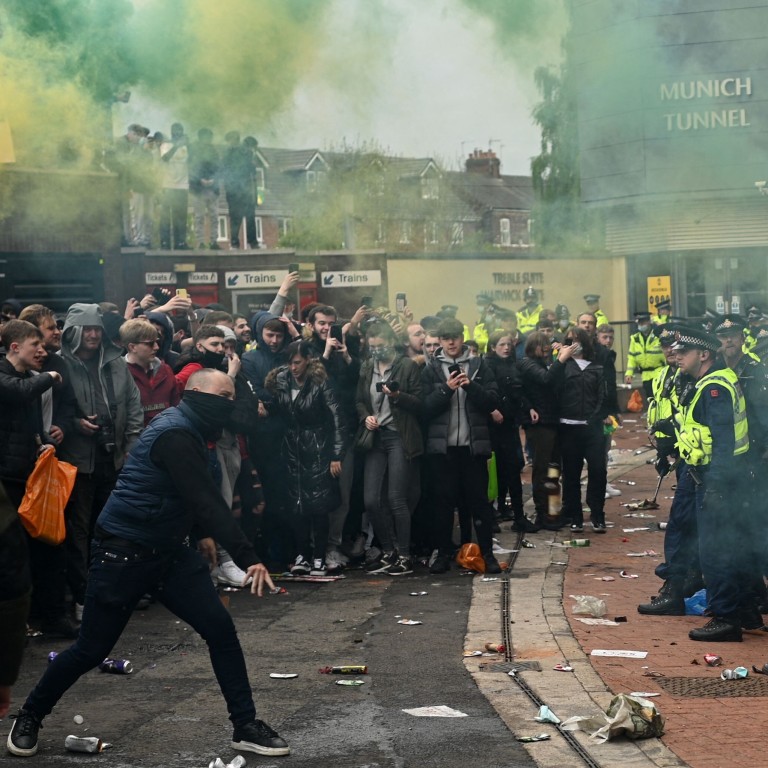
Man United and Liverpool fans overseas can fight back against football’s greedy owners
- Furious English Premier League fans in Asia and beyond should expect more money-grabbing ventures from club owners but they are not powerless
- Boycotting games, merchandise, social media and China’s new Manchester United Fan Experience centre are options overseas amid European Super League backlash
The writing has been on the wall for football fans since the modern game came into being with the advent of Sky TV and the English Premier League at the start of the 1990s.
There will always be this desire for more. More money, mostly, on the part of the club owners and more of whatever it takes to get it.
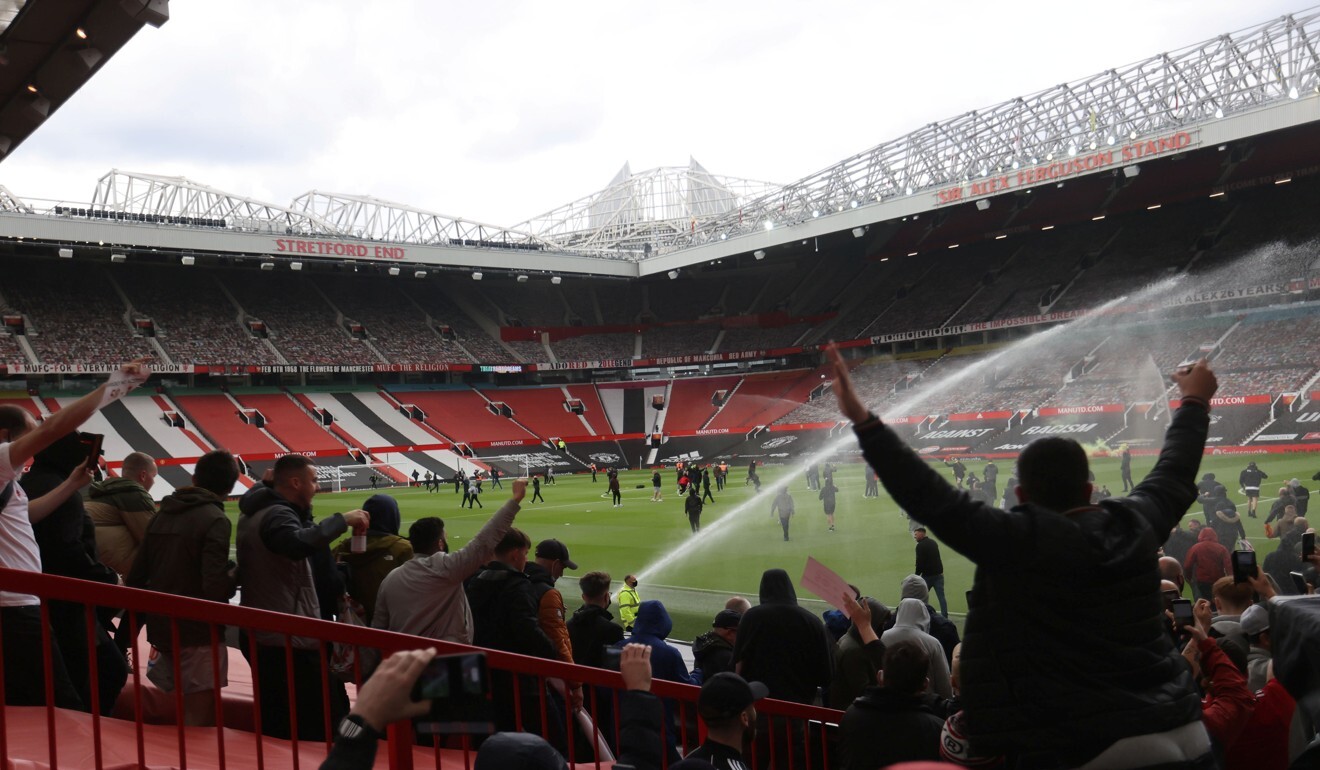
The last thing that they want is another midweek competition with kick-offs in the middle of the night or diluting the competitions that they have fallen in love with.
Future of European Super League is Chinese football’s present
Those scenes have not been copied elsewhere in the English top flight yet, but United fans are promising more of the same in the rearranged fixture on Thursday, hoping for more disruption to the TV schedules.
More importantly for those who want to see the back of the Glazer family and the debt they have loaded onto the 143-year-old club, there have been financial implications beyond a failed match day and the bill for policing the protests.
Reports last weekend said the club’s £200 million (US$218 million) deal with local firm The Hut Group is the first major commercial casualty.
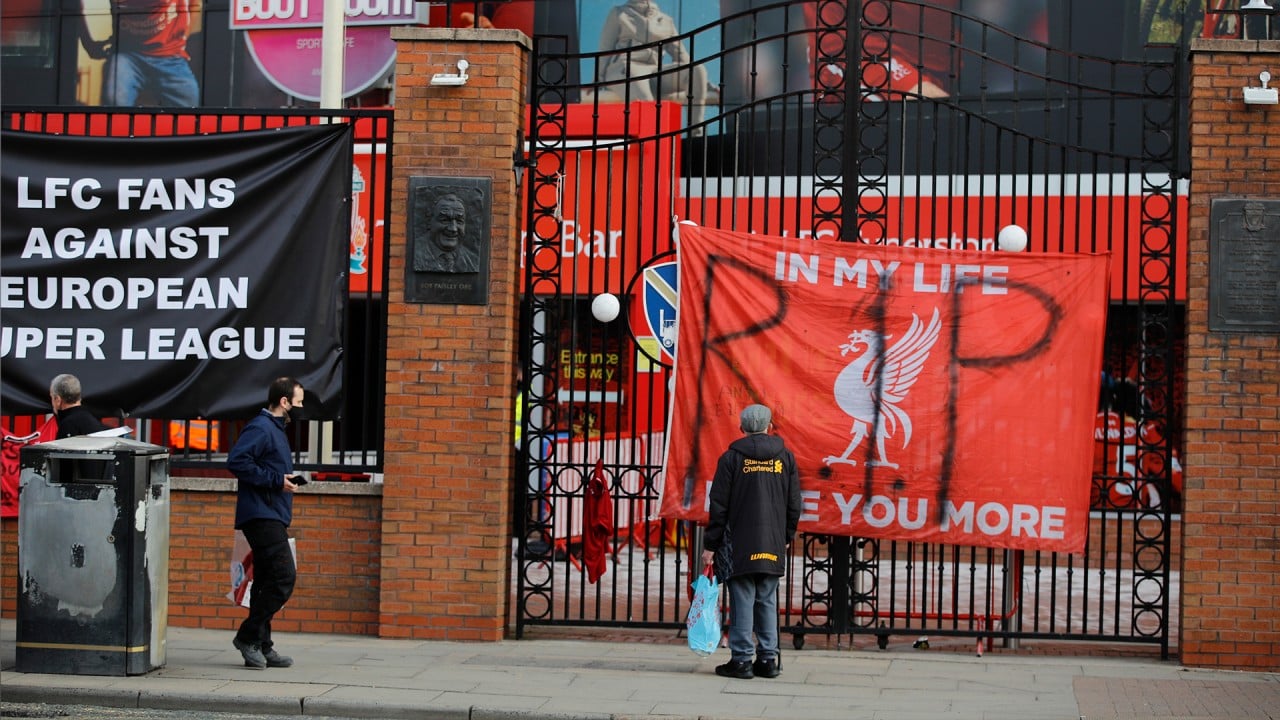
05:37
Plans for breakaway European Super League plunges football in Europe into crisis
The 10-year deal, which was set to start in July, is no more with The Observer reporting that the company had “concerns about the supporters’ campaign to boycott the club’s commercial partners in protest at the Glazers’ ownership” and were “taken aback by the subsequent social media and online backlash against United’s partners” after the Liverpool game was postponed.
Some supporters have used the hashtag “not a penny more” to call on fellow fans to boycott United’s major commercial partners.
The Hut Group were apparently worried that they would be targeted by local fans but what can foreign fans, especially those as far away as Asia, do?
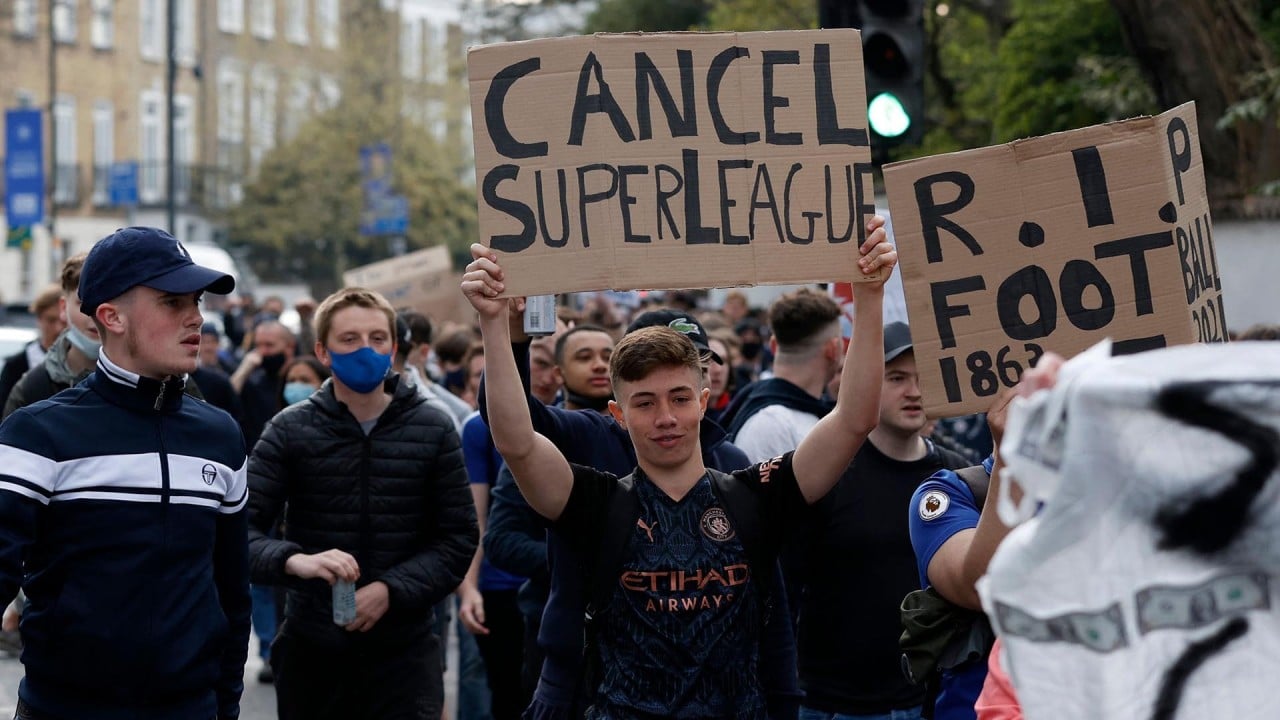
03:49
‘A missed opportunity?’ How the European Super League could have impacted China
Let’s stick with Manchester United as an example, but it goes for other clubs just as well.
First of all, anyone with the money can come in and buy the club.
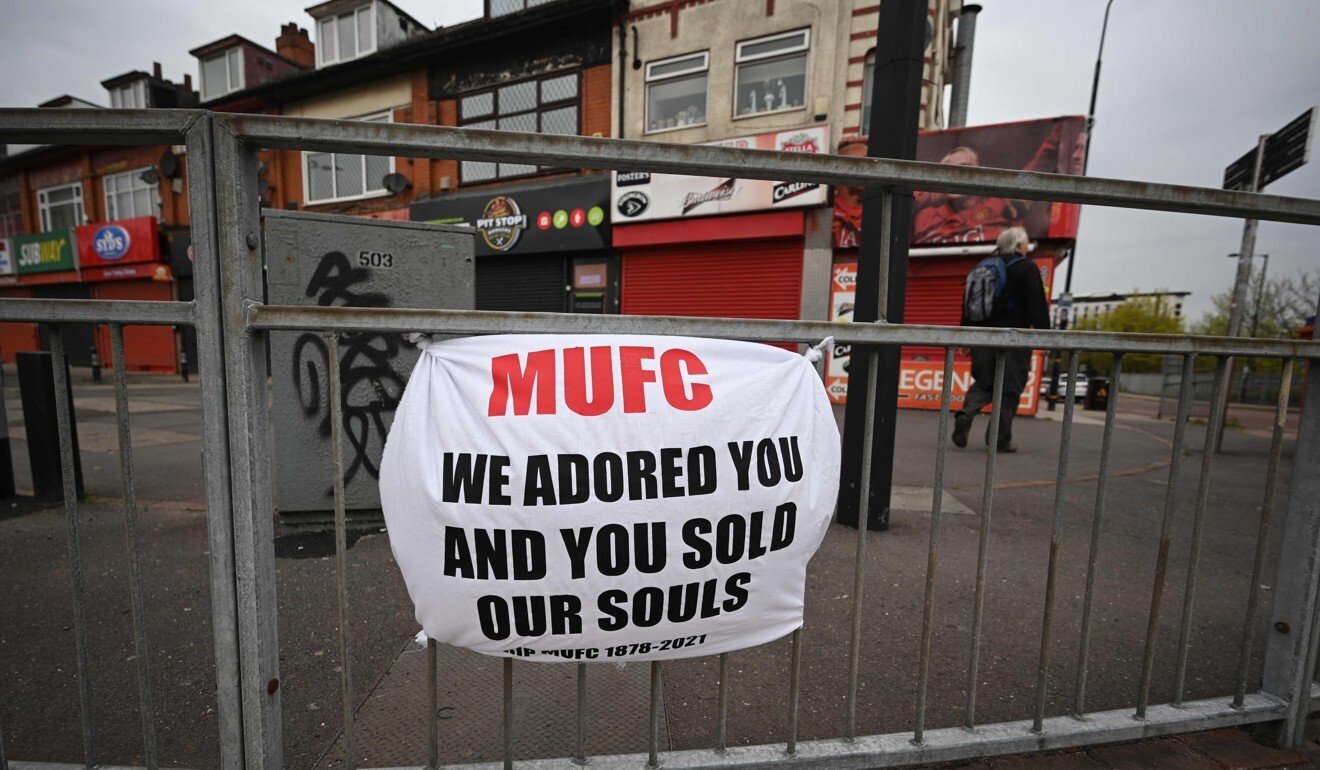
There is also the EPL’s fit and proper persons test, though fans of many clubs will tell you that given the six owners of English clubs that backed the breakaway league, owners need to be neither.
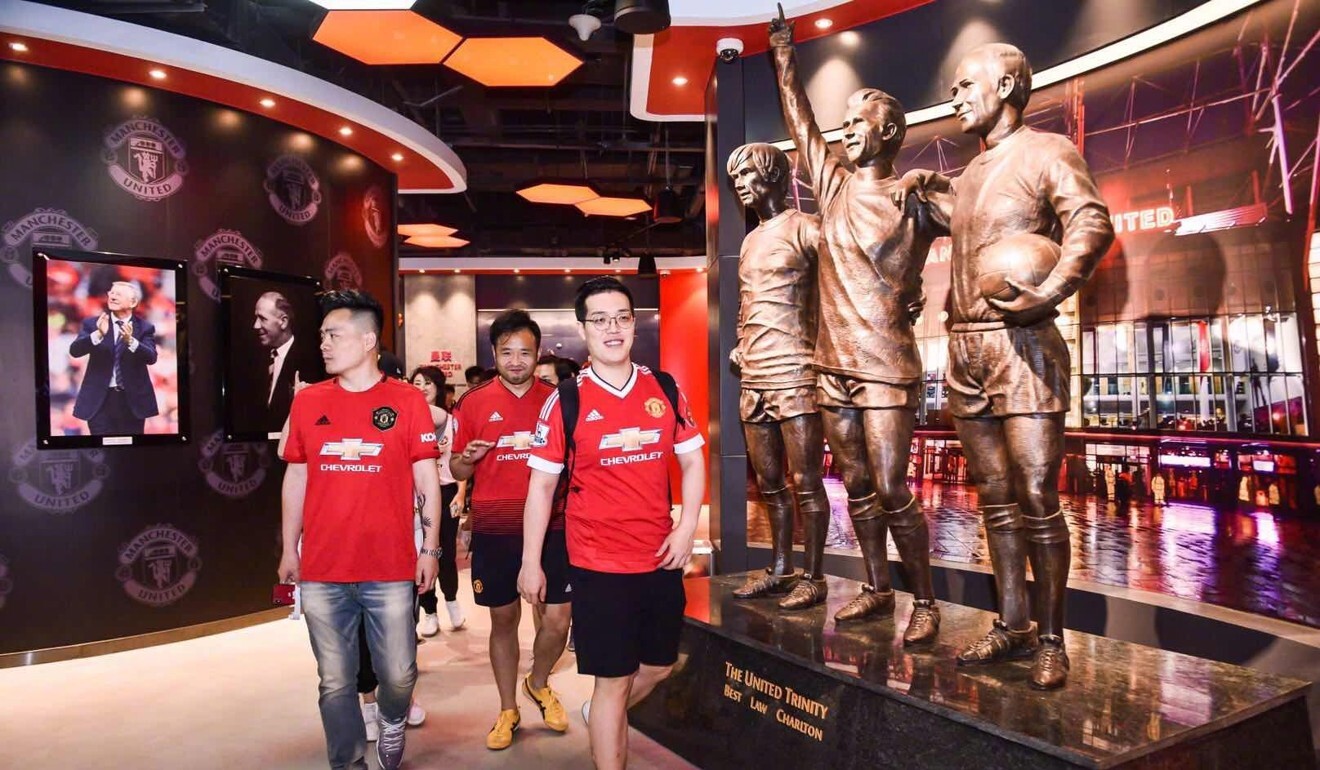
Fans could stop buying official merchandise and any decrease in sales hits the owners in their pocket.
The Manchester United Fan Experience, which opened in Beijing the same weekend as the scenes stopping the Liverpool game, seems an obvious example for a boycott. Other clubs have similar projects, of course.
A boycott of commercial partners is perhaps the most obvious way for owners to be hit in those pockets, as the “not a penny more crowd” suggest. Not a dollar more, not a yuan more, not a Korean won more. It all adds up and in the case of Manchester United, the number of regional partners has been seen as success by those in the Old Trafford boardroom while the trophy cabinet has gathered dust.
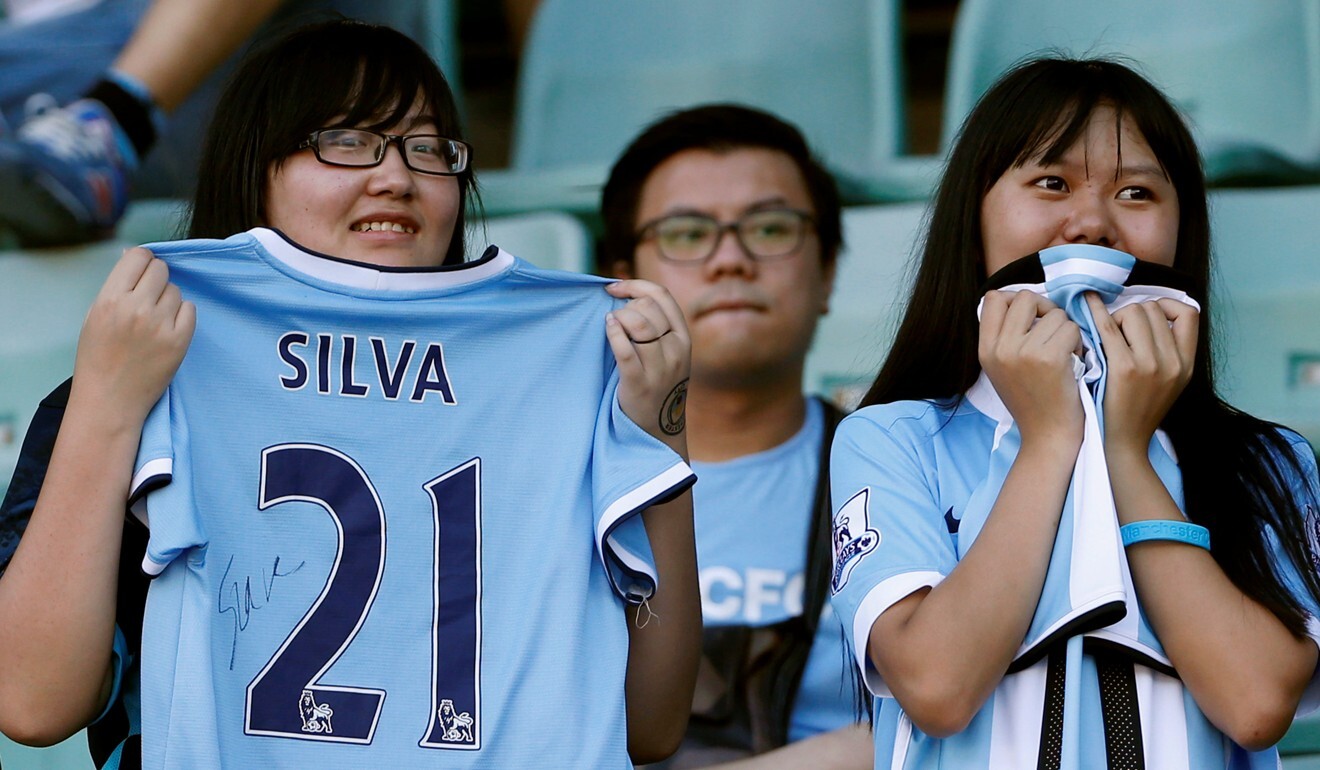
Such partnerships have been built on social media following, leveraging these numbers into partners. In their last global survey in 2019, Manchester United claimed that they have more than 1.1 billion fans and followers worldwide.
Stop following and the club looks less enticing to the global mattress partners and toilet roll embossers.
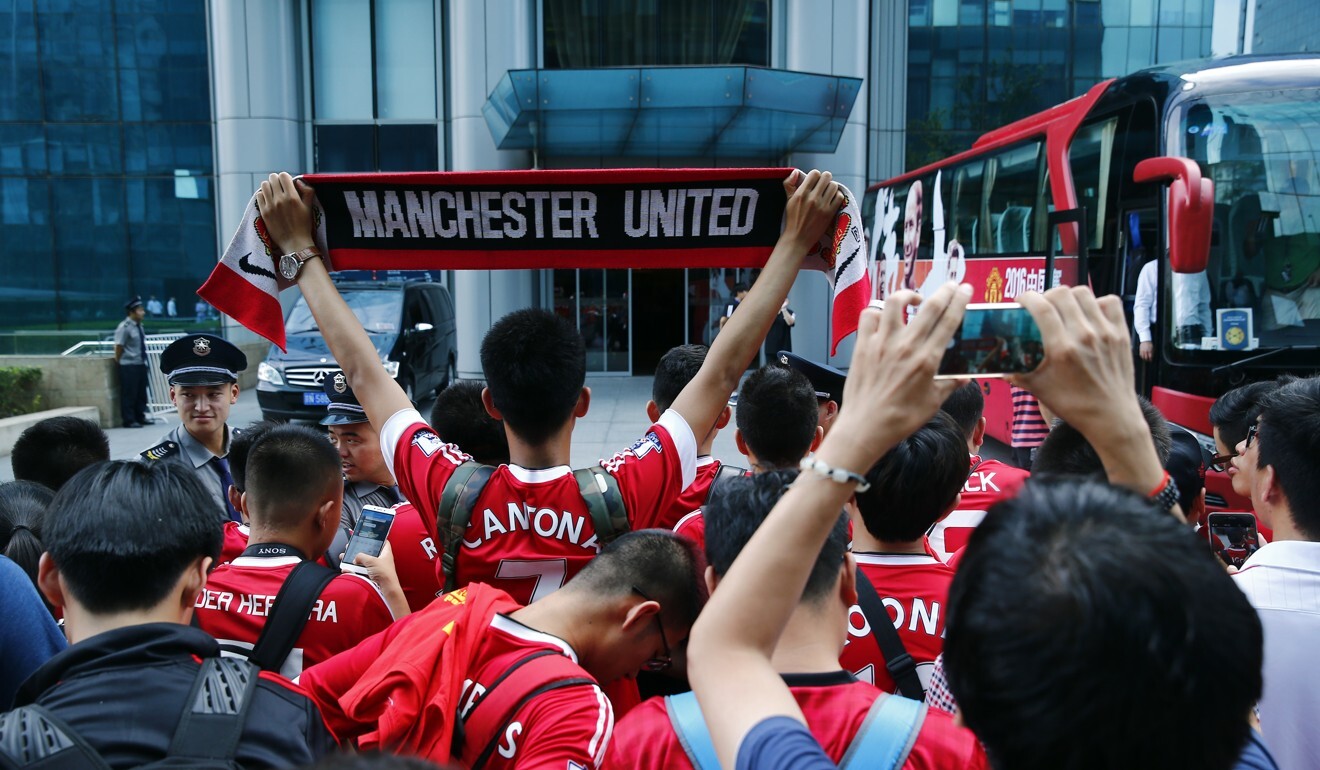
Unfollowing takes a click but the question is whether that clicks with football fans around the world. If they share any of the frustrations of those closer to home grounds then maybe they can make a difference, too.
Football clubs don’t want fans or followers so much as customers and the customer is always right.

